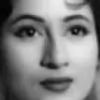Originally posted by: skanda12
For my own analysis this week I was inspired by this war ... the highlight of this week. Even though they are destructive, wars are in a way good things. They help to bring all the rumblings and rough edges out into the open, and after the two warring forces thrash it out spilling blood and gore, there is usually a cleansing of the atmosphere, where the old is replaced by the new.
Seeing this war made me realise that there also has been many mini-wars going on inside Jalal, and also inside Jodha, all this while. Both of them thankfully seem to have found ways to make their old selves "lose" and their new selves "win".
I am not sure of this, especially wrt Jodha. She is still quite a way from the happy situation sketched out in your last line, as she is still, basically, in the Jalal ka sar phase, right up to her meeting with Sujamal in her bedroom. And I do not see her moving too far away from it for a while yet, even if she drops the sar part!
The wars inside Jalal
1. Dependency vs. Independence
The old Jalal was dependent. He was dependent on Bairam Khan, Mahamanga, Ruqqaiya, Hamida Banu. He was dependent on them even for very trifling decisions. He was dependent on them for his own identity, which he saw as products of their influence on him from childhood. He needed to keep confirming his dependence by repeatedly saying to himself and to others statements like:
- "Unko hum walid ka darja diya hai"
- "Unko ham ammi ka darja diya hai",
- "Ruqqaiya sirf meri biwi nahin, sabse pehle meri dost hai"
- "Ammi Jaan says this, Badi Ammi says this, Ruqqaiya, what do you say?"
And now suddenly in the space of a few crucial weeks, Bairam Khan is gone, Mahamanga looks like a killer, Ruqqaiya could not support him in a moment of deep depression, Hamida Banu looks weak and watery ... inside Jalal, the war between dependency and independence had to be faced. Independence has triumphed. The new Jalal has emerged. When told that Bakshi Banu needed to be married again, for instance, he just turned around and said "Okay, I'll think about it, and let you all know my decision!". That was just one tiny example of change in Jalal. In the Friday episode, he decides unilaterally to teach Adam Khan a few lessons on war ethics himself, and in the coming episodes, he will no doubt handle the alliance talks with Bharmal on his own. He has also stopped dithering.
Yes, but why, and more important, how? A real ditherer cannot change himself overnight, for the indecisiveness is inbuilt. Moreover, they did not show any really important point where Jalal had to decide and he could not, apart from the dilemma of how to deal with Bairam Khan, which was a case apart because of the bond Jalal has with him.
The only decision, or rather impulse of his which was overruled and he did not protest was when he wants to attack Amer at once, and Bairam Khan says that the time is not right. Even there, Jalal then proceeds to flout his Khan Baba's express instructions, and goes off on a dangerous adventure in Amer.
While in Amer, far from being indecisive, he is amazingly decisive, with a cold courage and tremendous presence of mind, without which he would have got both Abdul and himself killed, or worse, arrested and imprisoned. Jalal there has the brash decisiveness of a d'Artagnan, and luck, a susceptible lady, favours him. But the resources of mind and body are all his: the icy coolness in a very tight situation, the foresight in noting and making that mark on his forearm, even remembering to turn the stones in his rings inside, the swiftness in getting them both out of the prison, and finally deciding not to try and outride the pursuers but to stand and fight them, and how! This is not what an indecisive ditherer does.
The fact is that Jalal always had in him the 'right stuff' of which astronauts and kings are made. He did not have to change himself to develop it. It just had no chance to surface earlier, and now he has to do things on his own after his Khan Baba is not around any more (as he was not at Amer, either), and so he copes on his own, that is all.
Just as he had in him the innate sense of justice towards all his subjects, and the code of honour in war, sparing women, children,the old and the infirm. There is a streak of cruelty when he is enraged - a failing common to most absolute rulers -which comes up with the shoe thief, but in general he is not cruel without reason. And this is independent of Jodha.
2. Hamhandedness vs. Subtlety
The old Jalal was brash and with a be-damned attitude. I suspect that the influence of Bairam Khan - more importantly, the shelter of Bairam Khan - made Jalal believe that he could get away with anything and not have to personally face the consequences of it. Bairam Khan was acting as a buffer between Jalal and the people, and Jalal was cozy in the position of being powerful without being directly accountable. In the initial episodes we saw him being wilfully savage (cutting men's feet), disdainfully brutal (chopping and heaping the Amer soldiers), and full of public bravado (making the Rajput man choose between his wife or his life in the middle of the street). How things have suddenly changed. Now that there is no buffering presence between himself and his praja, and his opponents too, Jalal no doubt finds himself having to carefully calculate the consequences of his words and actions. There has been a war within him between hamhandedness and subtlety.
The new Jalal prefers subtlety. Look at the way he has handled Salima's situation. Rather than disturb the equations between himself, Mahamanga and Salima, he has made a calculated move to give Salima status via marriage - and is also holding his cards close to his chest on the question of whether he thinks Mahamanga is culpable or not. He has allowed Sharifuddin and Adam Khan to handle their wars without feeling compelled to jump into the action himself. He has lost the pig-headed boy and become a more reflective man.
I agree in toto. He was like a heedless and at times unfeeling boy. He has come into his own, and so he has changed. But it is not, to my mind, so much a question of feeling accountable to the praja. I do not think that this angle would ever have occurred to Bairam Khan, and thus not to his pupil either, any more than it would have occurred to any contemporary ruler anywhere in the world. A need to handle one's opponents - external and internal - carefully, yes, and your example of the Salima issue is spot on. He was very clever there. But in general, while kings would take care to carry the bulk of their nobles with them, as for the populace at large, that would, in that age, be seen as irrelevant.
3. Self-conceit vs. Vulnerability
One of the best episodes I loved was the trip he made to Amer, when romance seemed to be in the air. But I can't help remembering that throughout the trip Jalal was also snickering with superior self-conceit at the goings on in Amer and in Jodha's palace when he snooped on them ... his smile used to be derisive and dismissive. He self-declared himself to be fearless, heartless and invincible. In fact he thought himself impervious to Jodha's charms beyond a point because he had no heart that could be wooed and won. He believed he therefore had no "weakness". He was also encouraged by a wife who constantly reminded him that he has no heart, and many a time Mahamanga also reinforced the point.
Contrast that Jalal with the more recent Jalal who bawled out like a vulnerable and helpless child when Bairam was assassinated. And notice how he crumbled with self-doubt when his mother Hamida Banu tried to tell him about the importance of love, and the ability to bear a child from love. Vulnerability was not even in his dictionary till events exposed the fact that he has a heart and it is alive and well. In the internal war between self-conceit and vulnerability, Jalal is only now slowly beginning to acknowledge that it is OK to feel vulnerable, and that it does not mean he is a weak person.
When he is ready to face a life with Jodha and his feelings for her start to churn his heart even more, he will have to come to the point where his vulnerability itself will become his biggest strength. That's a little far away just now. But he's getting there.
Yes, I agree with this too, except I have never understood this vulnerability becoming the greatest strength bit. Strength for what? For forgiving one's enemies? Prithviraj Chauhan did that with Ghori,with horrendous consequences for himself and his people. A ruler cannot afford to be vulnerable, he has to be strong and to be seen as strong. The day this fails, his power and his control will start waning. Akbar understood this very well all his life. He was never needlessly cruel, but he was very harsh when he felt it was called for. Chittor made him undertake a tough,prolonged siege, and when the fort fell, he had every defender killed, as an example to others. Ranthambore, in that same year, 1568, surrendered much faster.
The wars inside Jodha
1. Naivete vs. Wisdom
Jodha was a girl untouched by a man's love until her parents suddenly decided to neutralise the prophecy of a Shakuni Bai by getting her urgently married to the next available eligible man. How quickly Jodha went from first wanting to hand her suitor over to her sister, to then accepting him as a "arranged husband" and then even believing herself to be "in love with Suryabhan" amazes me. Suryabhan was surely in love with Jodha, but did Jodha really "love" Suryabhan truly - or was her idea of love just superficial? Was it her naivete and lack of sophistication about love that made her think that holding hands, or sitting for portraits, or sharing common opinions about a mutual dushman (Jalal!) was this thing that people call "real love"? What a shock then, that the real war on the battlefield imposed a simultaneous war inside Jodha between naivete and the genuine wisdom of love. Her fiance had to be beheaded, and she had to go through the horror of it to even discover if her emotions for Suryabhan ran deep enough to be called love. Many of us who watched that epsiode of the "fainting" still doubt whether Jodha's reactions to Suryabhan's death were only lukewarm because there was no depth to her love for him.
Whatever Jodha felt, however, she has bounced back remarkably fast. In the recent SBS segment we find her ready in a couple of week's time to marry any other groom of her parents choice. The real test of whether Jodha has got wisdom about love after all these upheavals will come when she realises that Jalal is the new groom. To overcome real hate she will need real love. And that's when she will realise also what that kind of love is all about.
I agree, but I do not see much wisdom in her as yet. Or any inner turmoil either. She is exactly where she was, as judgemental and as free of any nuanced understanding of the realities of life. Her dadisa is a hundred times wiser and more practical. I hope she gives her poti a comprehesive lecture before her bidaai.
2. Shelteredness vs. Reality
Jodha's family is a cocoon. It is a sheltered place where the family is so close-knit and so self-contained that the world outside it seems to be almost non-existent for the members of the family. The women in particular seem to be protected and cossetted, and Jodha more than everyone else seems to be the apple of everyone's eyes - her parents, her brothers, her sisters-in-law, her grandmother ... Mainavati got the first taste of shock in the family when Shakuni Bai prophesied that Jodha would "leave the fold" to go to the Mughals. Jodha then got more reality shocks when the war broke out. Now to add to the fear is this dream precap of her getting molested by the lecherous Mughals. The war inside Jodha between sheltered safety and the reality of the harsh world outside is raging now. Already Jodha is realising that her comfortable, innocent existence is threatened, but she has no idea of the kind of political hotbed she has to go into when she marries Jalal. He himself is the No. 1 reality check for her, and his household is full of vipers. From what I see, it took little for Jodha to overcome the death of Suryabhan and she adjusted fast enough. I feel she will be able to put her "maike" behind her and respond equally fast to Jalal's life. Jodha seems to be soft, but she also seems to be able to move on quickly.
Yes, she is plenty tough inside, and she will find ways of dealing with the whole lot at Agra, from her patidev to all her soutens. In this, she is very like Jalal who, though he faced far more hardships all his life till recently, was also sheltered, primarily by Bairam Khan. Still, when he has to cope, he does cope.
3. Blind faith vs. Practicality
One of the most notable aspects of Jodha's personality seems to be her blind faith. She has blind faith in God, in Suryabhan, in Sujamal ... it is very interesting therefore to see that now she has come to a point where she has to start questioning whether blind faith alone will work miracles in this world or whether she has to have a practical streak also. For instance, God did not quite answer her prayers during the war. Diyas were bhujao-ed by the winds, and prayers for success in the war went unanswered. God has other plans for Jodha for later, but at that moment of the war, her blind faith that God will only give her the one outcome she wanted was a bit immature on her part. Likewise she had blind faith that Suryabhan was the "warrior of warriors" and all would be well when he entered the war with his soldiers. Earlier she had the same blind faith in Sujamal. According to her Sujamal had a halo round his head. Inside Jodha therefore there needed to be a war between blind faith and practicality, which is a lesson she must have learned now after hearing of Sujamal's betrayal and Suryabhan's mortality. Going forward I feel that her natural hate for Jalal will itself prevent her from placing blind faith in him to start with. That may be a very good thing, because he too needs to earn her trust. When Jodha eventually develops faith in Jalal, she won't be blind about it, but her trust will be unshakeable because it will be based on practicality.
An excellent analysis. But not only on practicality, but on understanding that life is not comfortably divided into black and white, that there are many shades of grey as well, which in fact predominate. That the choices that her husband faces as a ruler are very often not between the right and the wrong, but between two wrongs, where he has to decide which is the lesser wrong . She will then, not being an impractical fool like her mother in law, learn to be less self-righteous and judgemental, and thus both more pragmatic and wiser, and become a true helpmate to Akbar.
































768